A Woman Laughs Inappropriately by Nabhan Alhanshi
- 12 -
In his yearning for her, there were mornings when the early light of day broke on a wall of expectation... and whenever he walked down memory lane there was no getting away from her.
Had praying ever been enough to ward off these furious eruptions of nostalgia?
Was it conceivable that he should still be longing for her when she ran through his very arteries and veins?
How could he settle for a destiny in which the mornings no longer brought the two of them together over steaming cups of coffee? How could he content himself with a life in which days, months, years passed without sight of her?
Being apart from her intensified his misery, which was all about her... meanwhile his memory could conjure up no happiness in which she played no part.
In short, he was well acquainted with sadness as far as she was concerned, but knew nothing of happiness!
* * *
It took some days for him to get used to his face in the mirror with only the faintest hint of a beard. And sometimes, when he scratched his chin, he remembered how May had once pulled off his white cotton skullcap; he remembered how confused it had made him, wondering how a girl could surprise him by tearing off his cap when she had already torn his heart apart with love, and how, as soon as he had crossly grabbed the cap and put it back on his head, May had laughed and laughed, telling him: “It’s like you’re the woman and I’m the man!”
What was he to do about all these nostalgic yearnings?
“Tea.”
Leila, one of his shop employees, put a cup down in front of him. “Could I have five minutes of your time, sir?” Ali laughed at the word “sir”, which reminded him of the secretary at the ministry. “By all means, Leila,” he said.
Leila wanted to talk to him about China, and trading opportunities there that could reduce his expenditure and increase his profits. Although he didn’t initially get the idea, and then hesitated for a while, Ali soon agreed and started looking at websites with Leila to track the prices and models of IT equipment on the Chinese market.
Rewrapping her scarf round her head, Leila told him enthusiastically: “I’ll contact the companies to tell them your address, the hotel where you’re staying, and fix some dates with them so they can pick you up and take you to their showrooms and then back to the hotel. Of course, the person bringing you to the hotel will have to communicate with you in English. So far I’ve made arrangements with four companies.”
Leila took some papers from another table and put them in front of Ali. “Look at these photos – these are all their products. I’ve given you here the products for each company. My elder brother Muhannad’s been there twice, and he gave me the name of a Swahili Omani with an import-export office in Guangzhou who could forward the goods you want to order, and get you a good price. And anyway, you won’t need to go there other times, you can order from here and send the money to the import-export office, and the man will take care of everything at that end. My brother’s tried them twice and they worked well for him, but of course that was just personal items.”
Ali looked at Leila, taking in her idea. “Great work – well done. I must say, your degree hasn’t gone to waste.” He gathered up the papers Leila had set in front of him and started trying to get his head round the idea of a trip abroad.
* * *
Once he had the ticket in his hands, he wondered how it hadn’t occurred before to a man like him, wounded by love and burdened by painful memories, to travel abroad and get some relief from the unhappiness weighing on his heart, if only temporarily. “The visa will be ready when you want it,” said the travel agent, “depending whether you choose fast track or regular. It’s the same visa, only the price is different, and given the date on your ticket I don’t think there’d be any problem with regular. It’ll be for one month only.” Ali left the man at the airline office to go shopping for the clothes he would need for the journey.
In the Carrefour in Qurm he suddenly felt inexplicably sad, although there was absolutely no call for unhappiness. And whenever he was suddenly seized with nostalgia he would call to mind some little detail about May – her voice, her laugh, her way of walking, her hair.
When a woman leaves her scent behind her somewhere, it’s as if she’s setting a guard to monitor nostalgia and make sure it isn’t left alone, and certainly doesn’t sleep. Whenever Ali heard a woman’s laugh or saw a woman smile at him, he was seized by a thought that threw his feelings into disarray: Was this May in some other woman’s smile, or was it May’s smile in another woman?
He looked at the time on his phone – 12 o’clock. Resolving suddenly to silence the cries of yearning once and for all, he abandoned the items he’d picked up in the hypermarket and decided to go straight to the ministry! He kept asking himself questions the whole way there – what would she look like? what was her status now? would she be married or not, or might he find her with a bulging, pregnant belly? – yet he didn’t falter, but kept pressing on.
Mahmoud didn’t recognise him at first, but when Ali held out his hand to him and said “Have you forgotten me, sir?” Mahmoud’s eyes opened wide and he flung his arms out to hug him. Ali started to ask hesitantly: “Is the director still the same...?” but Mahmoud quickly cut in.
“No, sheikh! He resigned a year after you did, got a job with a private company at three times the salary, and gave up working for the government.”
The desks were just as they had been when he left, and in fact Mahmoud’s desk was exactly as he remembered it, with the laptop and a book by Darwish, and his earphones... but that wasn’t May’s fragrance, and the laugh he heard wasn’t her laugh. However hard he tried, he couldn’t bring himself to look in the direction of her desk. Three years – oh, what a lifetime of love had elapsed! What would he say to her, how would he greet her?
Mahmoud shifted in his chair to move closer to Ali. “Ali! Tell us your news. What have you been doing, and not doing?”
But right then Ali was still preoccupied with how the encounter with May would go once his eyes fell on her, wondering anxiously to himself: “How come she hasn’t welcomed me yet, if only for old times’ sake? How could she possibly have forgotten me?” In the end he turned toward to her without speaking; suffice it for now simply to turn his eyes on her, trusting to looks alone and leaving the details to work themselves out later – but the woman sitting there before him wasn’t May!
“Of course, you haven’t met my colleague,” said Mahmoud helpfully. She’s been working here for, what, two years? Since a year after you left, because after you resigned Miss May went on leave and then decided to return to studying full-time.”
The moment Mahmoud’s absurdly brief account dashed his impassioned hopes, Ali realised that the pain now clearly bearing in on him as a result of his sudden, impulsive decision was the outcome he would have to bear!
“How are you getting on with Darwish?” He addressed the question to Mahmoud in an attempt to hide his disappointment, now that his unhappiness had morphed into a lethal bullet and destroyed the hope on which he had set so much store, revealing it to be a mirage.
“Never mind Darwish, my friend, you should congratulate me – I’ve just had another baby!” Mahmoud was trying to open his laptop, tapping in the password. “You’re married?” Ali asked him, the news coming as a shock and stirring memories of an old jealousy. Mahmoud turned to him and slapped his thigh. “For heaven’s sake, man! Yes, I’m married, with a son and a daughter, and our third, another girl, arrived just yesterday! I’ve named her ‘Rita’, in tribute to Darwish and those beautiful eyes in the poem.” The words stunned Ali and made him dizzy. He leaned his head back on his chair and sighed: “Married and three children, ma sha Allah.”
“Can you imagine it, Ali, yesterday my mother-in-law brought Rita to me after the birth and said: ‘Recite the adhaan in her ear.’ And I said to her, ‘Why would I recite the call to prayer?’ And she said: ‘It’s sunnah,[1] and we’re Muslims.’ I told her: ‘I didn’t name the girl ‘Rita’ in order to recite the call to prayer as soon as she was born. Later, when she grows up, she can decide what she believes in for herself.’”
Mahmoud laughed as he recounted the incident to Ali, and went on, chuckling: “Just picture it – my aunt opened her eyes and sat for an hour saying ‘God forgive me!’ and ‘La hawla wa la quwwa illa bi Allah!’ and shaking her head. But what if she’d told me to read the baby a poem by Darwish, wouldn’t that be better? It might make her grow up a nationalist.” He rounded off the story with a giggle, whereupon the young woman, the May-substitute, suddenly burst into the conversation as if she’d been part of it all along: “Shame on you, Mahmoud! You didn’t have to be like that – what would have been the harm in humouring your aunt? Shame on you for upsetting her!”
Mahmoud then spoke to Ali rather more quietly, as if he didn’t want anyone to hear: “Do you have time today for us to meet this evening? There’s something I want to talk to you about – could we do that?” Ali, bewildered, tried to remember what he was supposed to be doing later, and answered without enthusiasm: “OK, fine, Mahmoud... any time that suits you, give me a call and we can meet up. But let’s make it in Qurm or Al Khuwair.”
He left Mahmoud there, taking with him painful memories of the place. He didn’t notice the embarrassed woman who almost bumped into him as he made his way out of the department until she dropped one of the files she was holding. Then, as their eyes met, he realised it was the former director’s secretary. Although she was wearing a headscarf this time, and her hijab wasn’t letting any of her hair show, nor was she wearing any lipstick or powder, he couldn’t help recalling nonetheless the sight of her sitting in the director’s room and then rushing out in a panic after being “surprised” in a delirious kiss. He smiled at her with the greeting: “How are you, ma’am?” – and calmly went on his way!
* * *
He stirred the froth on his “Caramel Corretto” in the Second Cup café as he listened to Mahmoud. He had been expecting this to come up at some point in the conversation, but he had not expected Mahmoud to launch straight in with the question: “Ali, what is it between you and May? First you left us, then she went off to study. I heard she was transferring to another ministry or some big investment company, but there was something odd about the timing of it, your leaving the office and her going back to studying.”
Ali looked away toward an empty corner of the café, oblivious to the cup in his hand, and paused before answering: “Mahmoud, it seems to me you’re asking about something that doesn’t concern you? Excuse me, but if you don’t mind it’s a private matter.”
With fumbling fingers Mahmoud opened two sachets of sugar at once and emptied both of them into his coffee. He swished the spoon around his cup in fits and starts, then said: “Look, Ali, I know it’s none of my business, but listen to me. As I understand it from May’s colleagues, there was something to do with getting married, some story about lineage and birth, Arab and mixed-race descent and all that meaningless rubbish. Yes, my friend, I’m telling you, meaningless rubbish.
“My family objected to my marriage, and I listened to them and gave up the girl I loved. And do you know why they objected? Because she was a Zadjali![2] Imagine that – I let the girl I loved and desired slip from my hands in order to please my family. They say pleasing one’s parents is one of the routes to Paradise, but what if you please them only to live your life in misery and torment? Anyway, my mother did her best to find a wife for me a few months after that, and I said sure, I’ll soon forget.
“Marriage, Ali – yes, it can provide you with warmth, sex, stability and children, but it’s only love that gives you life. Don’t repeat my mistake. Ignore what they say about destiny and fate and luck and all that stuff. When you get married, marry the one you love or don’t marry at all.”
Mahmoud uttered this last sentence in a theatrical kind of way, then grabbed his coffee and took a big gulp – Ali was sure he must have burnt his tongue – before continuing in the same confused and angry tone: “Don’t think I don’t know you only came today in order to see May. You weren’t to know she’s been on study leave for more than two years now. No, my friend, you gave yourself away by the way you behaved. But this confirms what I’m telling you – May will be like a curse that follows you everywhere, keeping you awake at night and destroying your peace of mind.
“And don’t tell me ‘it’s too late’, Ali. No, it’s not too late. May visited us a couple of weeks ago. She’s still not married or engaged to anyone – more than two years, maybe three, since the day you two broke up and she’s still not seeing anyone or engaged. Maybe you’d like to persuade me she’s just wrapped up in her studies, for example, or too busy to get married, but no, Ali, that’s just nonsense. You mustn’t mind me speaking so frankly to you, my friend. In love you have to make a clear distinction between the private and the public. Whatever conversations, messages and words of love there’ve been between the two of you are your business, but the fact that you’re now apart like this – I’m sorry, my friend, and forgive me for saying this, but you’re a coward. Yes, a COWARD!”
Mahmoud turned his face away toward a group of Asians sitting at the table next to them, and sipped his coffee without bothering to see how Ali responded. Ali felt his distress mounting inside him, but he didn’t leave his seat and neither did Mahmoud. The wan light of the café was falling on some bushes outside; a woman was trying to park her car; a café employee in his staff uniform was flirting with a European woman in the outdoor seating area. Everything around him was still moving, whether quickly or slowly, while Ali remained frozen to the spot.
His phone rang for a long time, stopped, then rang a second time. Ali didn’t answer it at first, not recognising the number, but when it rang a third time he answered.
“Salam alaikum, Ali. How are you? This is Hamad speaking, your Uncle Mabrouk’s son.”
“Hello, Hamad, how are you? How are the family?”
“What happened between you and my father last time you were here? He hadn’t been his usual self for several days, and then today he had a stroke – he’s in a coma now. But what happened between you – nothing serious, I hope? My mother tells me he was a changed man after that day you had lunch together?”
Ali took his leave of Mahmoud and set off for Sur, silently sobbing, to Sur Hospital as Hamad instructed. Mabrouk wasn’t just a neighbour. Ali suddenly realised something else about his life that had been true without his being aware of it, namely that Uncle Mabrouk was more to him than a neighbour: he was also the father he had lost, the mother he had lost, indeed the family he had lost. Standing now outside the intensive care room he observed a painful, sorrowful silence for some time. He couldn’t talk to Hamad about what had happened between him and Hamad’s father; the remorse was as much as he could bear for now.
Mona and Huda, who were there with their husbands, excused themselves and left, saying: “Hamad, dear, do keep us updated on how it goes.” Hamad meekly nodded, and then, remembering himself, quickly instructed them: “Make sure Umm Mubarak is all right on her own in the house.”
Ali didn’t go anywhere; he stayed with Hamad till the early hours of the morning, when a grim-faced doctor appeared and awkwardly beckoned to Hamad. Hamad rushed over to him, Ali following. The doctor spoke in a heavy, stuttering voice. At that moment Ali felt as if he himself had lost a parent. The sound of Hamad’s sobbing, as Ali held him shaking in his arms, was like someone knocking at grief’s door, seeking permission to come in and share somebody else’s pain.
* * *
“I don’t know what happened between you and my father, God rest his soul, but I hope you know he loved you and looked out for you, Ali, and he was very sad and upset when he stopped hearing from you. God, I don’t know what to say to you, brother, but I feel that you’ve lost all your relatives and everyone who loves you.” Ali never forgot these words; they kept turning over in his mind, along with the image of Hamad and his tear-stained face. Jaalan no longer held any meaning for him from that day on, and it pained him whenever its name came up.
“Was it wrong of me to speak to him so harshly? How can I have got it so wrong? I was searching for an answer, for some kind of truth, wanting to know where everything went wrong...” He kept talking to himself without expecting any answer.
When sadness overcame him he withdrew into himself; and if he happened to feel cheerful, he proceeded warily, still keeping to himself. He would go to the cinema on his own, eat in restaurants on his own, walk along the seafront on his own. At a time of day when children would be falling asleep and a husband might whisper to his wife, or a wife complain to her husband about her aches and pains; when friends would be exchanging messages before going to bed, and lovers exploring their mutual passion before sleep; when men would be returning with another kind of passion to their home towns at the weekend, Ali was alone, with nowhere to return to, no woman to whisper to, nowhere to take refuge except in books and music. Even the branches of a tree have somewhere to belong, being connected to the trunk; birds feel a warmth returning to their nests; and waves sense some purpose in their buffeting when they crash on a sandy beach or rocks. But Ali was so very much alone that he lost all sense of connection to people, things and places. Yet he could never forget his grief, which remained his constant companion.
[1] tradition based on the life of the Prophet
[2] member of a small tribal community speaking Zadjali, one of several minority languages spoken in Oman




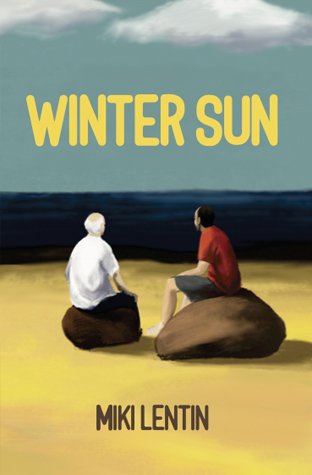
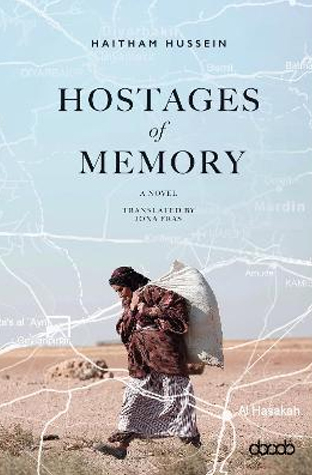

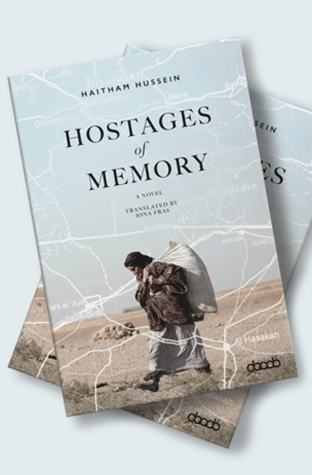
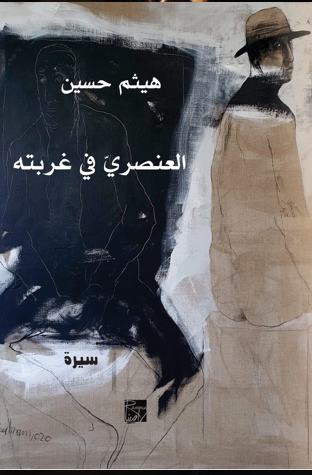
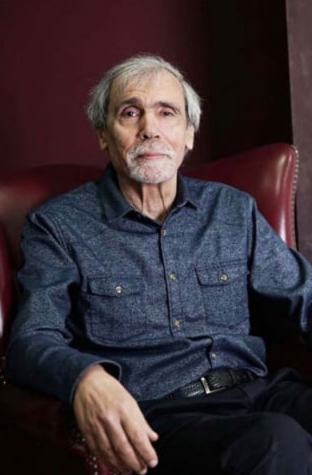
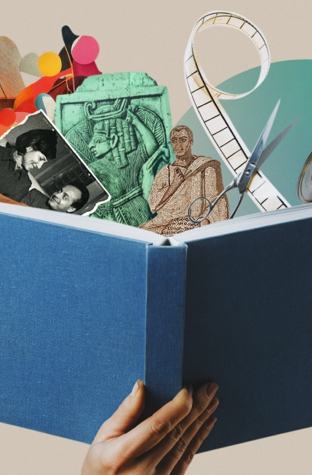
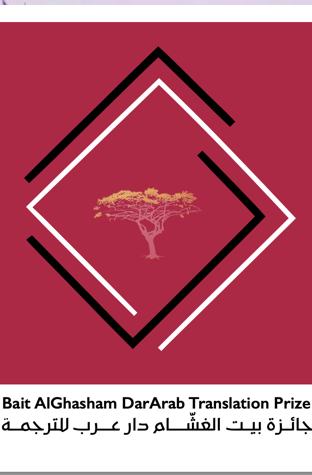
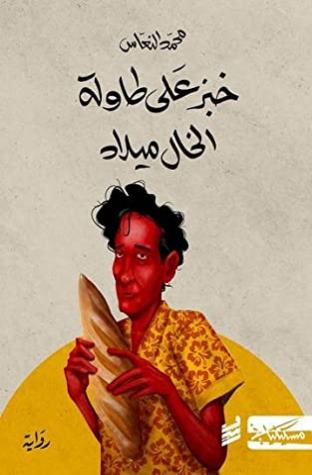
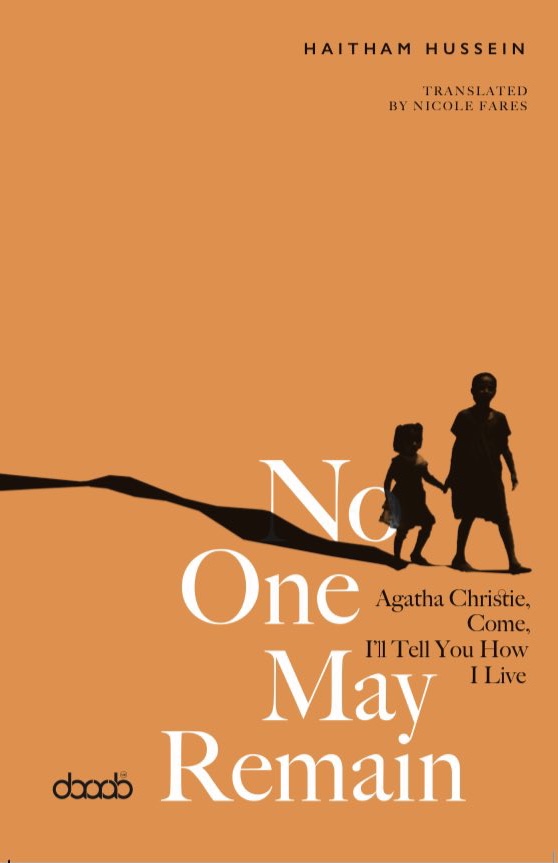

0 تعليقات